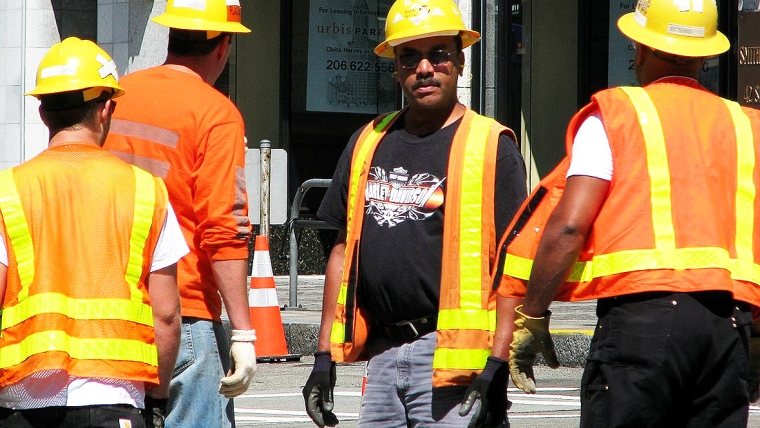
The looming downturn in residential construction and the supply of new homes is likely to start biting later this year, as the number of new homes being consented continues to tumble.
The latest figures from Statistics NZ show that 37,239 new dwellings were consented last year, which was 12,299 fewer (-25%) than in 2022.
The figures show that new housing starts probably peaked over 2021 and 2022, with more than 49,000 new dwellings consented in each of those years.
The biggest decline was for apartments, with just 2518 apartments consented in 2023, down 42.6% compared with 2022.
That was followed by stand alone houses -26.8%, retirement village units -23.3% and townhouses and units -19.3%.
The total construction value (excluding the value of the land) of the new dwellings consented last year was $16.5 billion, down $3.8 billion (-18.6%) compared to 2022.
Around the regions, the biggest declines in the number of dwellings consented in 2023 compared to 2022, were in Tasman -43.9%, followed by Wellington -37.3% Northland -33.1% and Auckland -27.3%.
The comment stream on this story is now closed.
Building consents - type
Select chart tabs
•You can have articles like this delivered directly to your inbox via our free Property Newsletter. We send it out 3-5 times a week with all of our property-related news, including auction results, interest rate movements and market commentary and analysis. To start receiving them, register here (it's free) and when approved you can select any of our free email newsletters.
18 Comments
The crunch will really hit the massive construction sector in about 6 months. Not to mention heavily connected sectors such as furniture retail.
In the meantime, it’s really hitting all the professions involved at the front end - architects, planners, engineers etc etc
Maybe architects will get desperate enough to start listening to their clients. We're looking to do a large extension to our historically significant home and want it to be sympathetic to the original Arts and Crafts house but so far all the architects we've met with just want to smash out walls and make everything open plan.
Thanks, David. Any chance you could report on the gap between housing starts and consents over the past few years?
gives a nice gap for those who want to do renovations. Be builders willing to drop their price to secure some work,surplus materials with less construction and Interest rates may drop a bit. It will take a wee while to crank the wheel back up again.
Unfortunately middle NZ is broke. Paying the mortgage is hard enough at the moment, let alone paying for a renovation
Back to 2017 numbers. Before the boom, when there was less immigration.
I wonder where this is heading. 🚀
Yep same old same old.
There will be another housing shortage by late 2025 / early 2026, and house prices will start rising again.
Yet, housing supply will respond again as costs of finance fall and house prices rise.
It’s all very cyclical.
Cycles will remain the same, but I think the upswings are going to be constrained moving forward by cost of debt. We also remain incredibly exposed to a huge down swing if unemployment really spikes, which I think is inevitable, it's just impossible to pick when. It might yet happen in this current cycle.
Excellent comment. 100% agree.
Whenever I talk about ‘upswings’ it is upswings that will be muted relative to those of the recent past.
Follow the math….
Exactly. Most people seem to think it's business as usual ad infinitum. You have to just conveniently ignore the decline in the neutral real interest rate since the 70's which has ultimately allowed people to acquire more debt and consequentially pump asset prices.
We are at a point where one of two things is going to happen, either that trend reverses, which most economists seem to be predicting, or we continue downwards to 0 and then what happens? I don't know, but it certainly isn't a continuation of the status quo!
You have to just conveniently ignore the decline in the neutral real interest rate since the 70's which has ultimately allowed people to acquire more debt and consequentially pump asset prices.
Not correct. Credit creation for housing fundamentally changed in the early 90s due to bank deregulation across the Anglosphere.
I'm not talking about housing, at least not in isolation.
I think the impact of immigration is being somewhat overstated.
Really need to know how many new household units are required vs what is actually being built.
Housing is already incredibly unaffordable. Most grad to intermediate level professionals I know are living between 4-6 in a house. Family's on the lower end of the economic spectrum are doubling up in one unit. Many of these are recent immigrants.
What is the composition of migrants? If we have 200,000 highly skilled single professionals, there's going to be a lot more demand created than 50,000 median income family units.
Btw those consent numbers are catastrophic in Wellington, -37%! Wellington’s economy is facing some very hard years ahead
Problem is Wellington constantly shoots itself in the head with stupid planning rules based on idiotic "analysis". This is the current stupidity: https://thespinoff.co.nz/politics/02-02-2024/the-first-recommendations-…
The conclusions on the Johnsonville line are farcical
My prediction is a 50% decline in consents before we see the bottom.
And I think it's only when Auckland consents numbers turn ugly will the government and RB fi ally take notice.
I called 40% a year or so back. But yes could easily be 50% plus

We welcome your comments below. If you are not already registered, please register to comment
Remember we welcome robust, respectful and insightful debate. We don't welcome abusive or defamatory comments and will de-register those repeatedly making such comments. Our current comment policy is here.